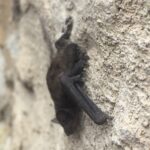
Complete Guide to Wasp Control for Pubs and Beer Gardens in Oxfordshire and Berkshire
Summer brings sunshine, outdoor dining, and unfortunately for pub landlords across Wallingford, Didcot, Wantage, Abingdon, and Newbury, it also brings wasps and pubs together. These uninvited guests can quickly transform a pleasant afternoon in your beer garden into a nightmare. Understanding effective wasp control strategies is essential for maintaining a successful hospitality business in the Thames Valley region.
Table of Contents
- Why Wasp Control is Critical for Pubs
- Understanding Wasp Behaviour Around Pubs
- Professional Wasp Nest Removal Services
- Preventing Wasp Problems in Beer Gardens
- Natural Deterrent Methods for Pubs
- Timing and Seasonal Considerations
- Health and Safety Considerations
- Legal and Insurance Implications
- Choosing Professional Wasp Control Services
- Cost-Effective Long-Term Strategies
- Integration with Overall Pest Management
- Conclusion
Why Wasp Control is Critical for Pubs
Wasps pose unique challenges for pubs and restaurants with outdoor seating. They are drawn to everything that makes summer service successful—food, sweet drinks, and people. One nearby nest can house up to 15,000 wasps at its peak. For public-facing businesses in Didcot and Wallingford, professional wasp control isn’t a luxury—it’s a necessity.
Aside from discomfort, wasps create genuine risks: stings, allergic reactions, legal liability, and damage to your reputation. Negative customer reviews mentioning wasps can reduce footfall significantly, especially in smaller communities like Wantage and Abingdon.
Understanding Wasp Behaviour Around Pubs
Wasps favour sugary substances—think beers, ciders, and pub food. Their behaviour becomes more aggressive in late summer when natural food sources diminish.
Common attractants include:
- Uncovered bins with food waste
- Sticky tables and spilled drinks
- Fallen fruit from garden trees
- Outdoor pet food bowls
- Compost heaps near seating areas
Knowing these attractants allows proactive pub landlords in Newbury, Wallingford, and Didcot to take early preventative action.
Professional Wasp Nest Removal Services
Never attempt to remove a wasp nest yourself. DIY removal often provokes swarms, endangering customers and staff. Licensed pest control professionals in Oxfordshire and Berkshire offer safe, efficient nest elimination with minimal disruption.
Professional wasp control services typically include:
- Full site inspection
- Identification of wasp species
- Safe treatment application
- Follow-up visits for verification
- Hospitality-focused prevention advice
Reputable providers near Newbury and Abingdon often offer same-day emergency services to handle sudden infestations during peak times.
Preventing Wasp Problems in Beer Gardens
Waste Control Protocols
Use sealed, animal-proof bins placed away from seating. Empty bins regularly and clean food residue immediately.
Regular Garden Maintenance
Keep vegetation trimmed, remove deadwood, and seal shed gaps or loft spaces where nests could form. This is particularly important for pubs with garden buildings in areas like Wantage and Abingdon.
Water Source Management
Repair dripping outdoor taps and avoid pooling water. Ponds or decorative fountains should be carefully maintained to prevent wasps gathering.
Natural Deterrent Methods for Pubs
Natural wasp repellents offer an eco-conscious option for pubs committed to sustainability. Essential oils (peppermint, eucalyptus, lemongrass) sprayed around seating areas offer temporary relief—but must be reapplied regularly.
Wasp-Repelling Plants for Beer Gardens 🌿
- Mint
- Basil
- Marigolds
These plants both beautify outdoor areas and help reduce wasp visits. A smart choice for rural pubs and those branding themselves around nature or eco values.
Timing and Seasonal Considerations
Understanding the wasp lifecycle allows better planning:
- Spring: Ideal for preventative treatment as queens establish nests
- Summer: Peak activity—expect high risk and demand for reactive control
- Autumn/Winter: Best time to seal structures and prevent re-infestation
Pubs that prepare in spring avoid the need for disruptive emergency treatments in August and September.
Health and Safety Considerations
Wasp control must prioritise customer and staff safety. Landlords should work with qualified pest control technicians who can operate discreetly and safely. Treatments must comply with COSHH and food safety regulations.
Staff Preparedness
Train staff on sting response, spotting nest activity, and basic first aid. This is particularly important for remote pubs where medical help may be delayed.
Legal and Insurance Implications
Hospitality venues must maintain pest-free conditions under UK food hygiene and safety laws. Ignoring known wasp activity could result in enforcement action or personal injury claims from customers.
Document Everything
Keep records of inspections, treatments, and staff training. These records show due diligence to insurers and local authorities alike.
Choosing Professional Wasp Control Services
Key features to look for:
- Specialists in hospitality pest control
- Rapid emergency callouts
- Environmentally friendly solutions
- Flexible scheduling to suit trading hours
- Knowledge of local pest behaviour patterns in the Thames Valley
Cost-Effective Long-Term Strategies
Annual pest control contracts reduce costs and disruption. These often include:
- Seasonal inspections and treatments
- Priority emergency support
- Customised prevention plans
Landlords with repeat issues should consider year-round plans for maximum peace of mind.
Integration with Overall Pest Management
Wasp control is just one part of a broader strategy. Integrated pest management (IPM) helps address flies, rodents, ants, and other seasonal pests simultaneously, making treatment more effective and cost-efficient.
Review your full pest control needs during quieter months to stay ahead of all seasonal pests.
Conclusion
Wasp control is essential for pubs in Wallingford, Didcot, Wantage, Abingdon, and Newbury. A proactive approach combining professional help, seasonal prevention, and staff awareness safeguards your beer garden and your reputation.
Don’t wait until it’s too late. Enlist professional support to keep wasps away and your customers happy throughout the summer season.



